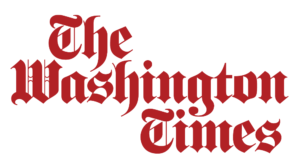
The Washington Times ran a news story on this election cycle’s notable increase in polling results among Libertarian candidates. From the Oct. 21 article, “Libertarians poll high enough to tip key races,” by Seth McLaughlin:
Rick Breckenridge has the chance to play a significant role in Montana’s senatorial election…. He is one of a number of Libertarians whose poll numbers are high enough to more than account for the difference between Republicans and Democrats in key midterm races.
Libertarians bristle at the term “spoiler,” saying it’s a belittling term for a party that presents a viable option to voters. But they are also excited about the attention their candidates are drawing in New Mexico’s senatorial race, Georgia’s governor’s race and elsewhere.
Although many of [the Libertarian candidates for senate, governor, and congress] are under the radar, the party’s nominees in Nevada, Indiana, Missouri and Montana are drawing scrutiny because in each of those seats — the first held by a Republican, the others by Democrats — the incumbent is in danger of losing.
Of those, Indiana is the most noteworthy. Libertarian Lucy Brenton was polling at 6 percent in a Fox News survey this month. That was more than enough to account for the gap between Sen. Joe Donnelly, a Democrat, and Republican challenger Mike Braun.
A Gravis Marketing poll released last week also found Mr. Donnelly with a 44- to 40-percent edge over Mr. Braun — and showed Ms. Brenton with 7 percent support.
Unlike some other Libertarian candidates, Ms. Brenton earned a place on stage in a debate, where she said Libertarians can offer voters an alternative in the severely divided politics of Washington.
“The lens that we look through is not left or right,” she said, at the debate. “The lens that we look through is one of being fiscally conservative and socially accepting — to be able to allow people the maximum freedom with really just two things in mind: don’t hurt people, don’t take their stuff. Other than that, you are good with me.”
She collected 5.5 percent of the vote in the race for Indiana’s other Senate seat in 2016.
Mr. Breckenridge, who ran for the House in 2016, said he hopes his candidacy allows people to think outside the box and inches the nation away from the two-party paradigm that he laments has purposely pitted voters against one another.
“What I see hear in Montana is we have gone from getting 10,000 votes in the senatorial campaign to, I expect, [getting] 20,000 to 22,000 votes,” he said. “So we have doubled in 10 or 12 years. I hope we can continue this trend.
“I don’t see us as spoilers,” he said. “We are just saying there is another way of doing things.”
On the campaign trail, Ms. Brenton and other Libertarians are running against President Trump’s tariffs, immigration policy and record on spending, which has spiked deficits.
Some say they would have opposed Justice Brett M. Kavanaugh’s confirmation, arguing that his rulings on government snooping and privacy are anathema to their brand of small government.
They also are embracing less spending and less taxation as well as marijuana legalization, criminal justice reform and ending the war on drugs.
“A thirteenfold increase in per capita federal spending has benefited government bureaucrats and crony capitalist insiders in the defense, intelligence, education and medical care industries,” Nicholas Sarwark, Libertarian National Committee chairman, said in an email blast last week. “It hasn’t done much for the common person.”
Libertarians complain that their candidates are often left out of polling, denying them name recognition and making it tough to know how much backing they have.
When the party’s nominees are polled, they and other third-party candidates show better in the surveys than they do in election results, said Doug Kaplan of Gravis Marketing Polling.
Still, he said, the potential for an impact is there.
That Georgia governor’s race has Republican Brian Kemp and Democrat Stacey Abrams in a statistical dead heat, according to the latest Reuters/Ipsos/University of Virginia Center for Politics poll. Libertarian Ted Metz is carrying 2 percent of the vote.
“With just a few percentage points’ worth of the vote, Ted Metz could end up sending the Georgia governor’s race to a runoff,” said Kyle Kondik, who analyzes races at the Center for Politics.
Others have been keeping tabs on the gubernatorial race in Wisconsin, where Republican Gov. Scott Walker is defending his seat against Democrat Tony Evers and Libertarian Phil Anderson. Mr. Anderson polled at 6 percent in the latest Marquette Law School survey, which showed Mr. Walker with a slight edge.
“That would be high for a Libertarian candidate here in the state who typically has gotten about 1 percent of the vote, but in 2016 the Libertarian did a little bit better than that in the presidential and Senate races,” said Charles Franklin, director of the Marquette Law School Poll. “Depending on how close the election ends up being, of course it doesn’t take that many votes to at least potentially tip the balance.”
Nick Gillespie, [editor at large of Reason magazine, a libertarian news outlet], said the next big test for Libertarians will be the 2020 presidential election. He expects some of the loyalty for Mr. Trump to burn off because of soaring deficits, questionable foreign policy moves and his brash style.
“What is happening is you have a Democratic Party and Republican Party that are at historic lows of party affiliation,” [Gillespie] said. “People don’t want to be part of these parties.”
As mentioned in the article, following the 2018 primary elections, the Libertarian Party (LP) has in the running more than 800 candidates for all levels of government on November 6 election ballots nationwide, offering voters a viable alternative focused not on partisan power-seeking but on policy that would increase individual freedom.
Learn more about these candidates at the LP’s website, LP.org/2018-candidates.

